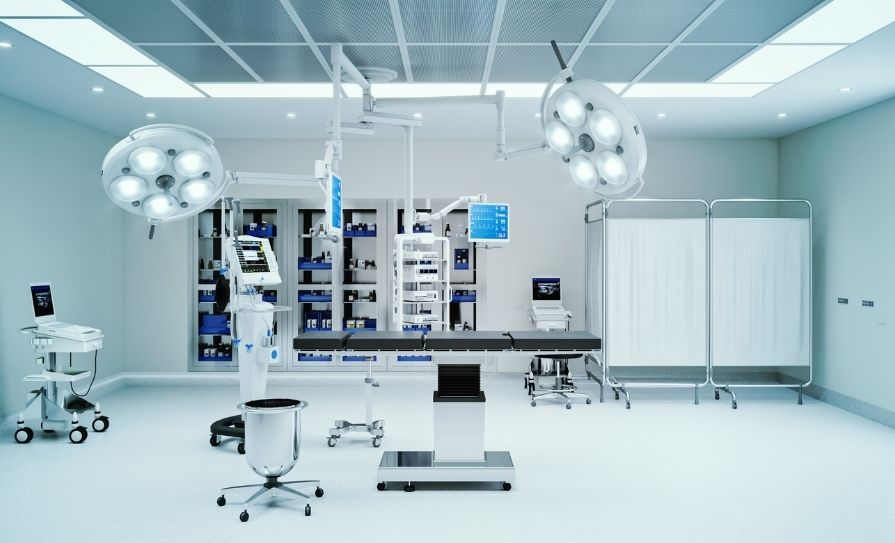Paul Mulholland examines minutes of the national screening advisory committee’s recent meeting
on possible additions to the newborn bloodspot screening programme
The final review of the implementation of recommendations from the scoping inquiry into the CervicalCheck screening programme, which was published in November 2022, was positive about the formation of the national screening advisory committee (NSAC). The creation of such a group was one of the recommendations in Dr Gabriel Scally’s original scoping inquiry report.
“The committee’s formation happened speedily, and its operation is transparent and a great credit to its Chair, its members, and all the staff involved in supporting and informing the committee,” according to Dr Scally’s final review.
The document noted it was “particularly commendable” to see the publication of the minutes of the committee’s meetings. These minutes give an important insight into the work of the committee and how it comes to its decisions. The meeting in December 2022 focused largely on the national newborn bloodspot screening (NBS) programme and the minutes highlight the various considerations involved in adding conditions to the programme.
SCID
At the meeting, Dr Laura Comber, Senior Health Technology Assessment (HTA) Analyst, HIQA, presented on the Authority’s final HTA of the addition of a group of conditions known as severe combined immunodeficiency (SCID) to the NBS programme.
SCID is a group of rare, but serious inherited conditions that are almost uniformly fatal in the first year of life without appropriate treatment. The estimated prevalence of diagnosed SCID in Ireland is relatively high at one-in-39,760 births, with 27 patients diagnosed from 2005-to-2020. The HTA found that national and international evidence consistently suggests that the implementation of T-cell receptor excision circles (TREC)-based analysis would enable the earlier detection of infants who would otherwise present clinically and such screening should allow appropriate care to be provided soon after diagnosis.
“The committee noted that TREC-based screening is not specific to SCID,” according to the minutes.
“Other T-cell lymphopenias (TCLs) would also be identified, and it is likely that the incidence of these non-SCID TCLs would be higher than that of SCID. These findings may vary in terms of clinical implications for babies, but it is important that specific clinical pathways are in place for those babies who will inevitably be detected with non-SCID TCLs.”
The committee stated that “significant communications issues” exist for parents and guardians and health professionals relating to newborn screening, particularly concerning false positive or false negative results.
“A plan should be in place for communication, dialogue, and reassurance to parents and guardians should they receive a false positive or false negative result,” according to the minutes.
As the equipment required for screening for SCID is not currently used in Ireland, planning is required to procure and implement the test by the NBS laboratory.
“Key operational challenges exist, and consideration must be given to the timing of implementation, given the scheduled move of the national NBS laboratory to the New Children’s Hospital.”
The committee decided to recommend to the Minister for Health Stephen Donnelly that screening for SCID should be added to the programme.
Other conditions
At its December meeting, the committee recognised the need for a transparent process to enable the preliminary prioritisation of the 35 conditions that may be considered for assessment for potential addition to the NBS programme. These include 30 conditions identified from clinical advice from the HSE’s NBS programme governance group, as well as additional conditions proposed via the committee’s first annual call, which was made in December 2021. The committee selected five conditions following the consideration of the preliminary prioritisation.
Spinal muscular atrophy (SMA) should be considered as the next priority condition to undergo an in-depth HTA by HIQA for addition to the NBS programme, according to the committee.
“This advice is based on the clinical urgency arising from the prevalence in Ireland, the severity of the condition, the recent availability of curative treatments, and an existing diagnostic and treatment pathway in Ireland,” the minutes state.
“It was also noted, in terms of testing platform, that the same testing kits used for SCID would also enable testing for SMA.”
It was agreed the Chair of the committee, Prof Niall O’Higgins, would write to HIQA to request a HTA on the potential for the condition to be added to the programme.
The committee agreed that sickle cell disease should also be considered for more in-depth assessment, noting it was commonly screened for in many other countries.
“The group noted that the changing demographic in Ireland would likely increase prevalence, and that a full treatment pathway (including bone marrow transplant) is not yet available in Ireland. Treatment is complex and evolving,” the minutes state.
The group advised that further information, including current opportunistic testing in Ireland, would be needed in evaluating screening for sickle cell disease in Ireland.
In-depth assessment of tyrosinaemia type I is also under consideration. The group advised that the longer list of conditions should be reviewed with a view to considering whether it would be more efficient to assess a cluster of conditions (including tyrosinaemia), which could be implemented simultaneously.
Another condition which should be considered for in-depth assessment was biotinidase deficiency. The group noted that while it was relatively rare in Ireland, it was treatable, and the testing kit required would be available in Ireland in the near future. The group advised that glycogen storage disease type II (POMPE) was “not appropriate to include in the priority shortlist at present as there is currently very limited screening carried out for this condition internationally”.
Addition
In January 2023, Minister Donnelly announced the approval of the recommendation for SCID screening, bringing to 10 the number of conditions screened under the programme. It was also announced that HIQA will carry out a HTA on SMA and is expected to deliver its recommendation later this year.
The importance of ‘feasibility’
The inaugural annual call of the national screening advisory committee (NSAC) in 2021 for proposals for new screening programmes, or changes to existing programmes, received a significant response with over 50 submissions. The committee gave each submission consideration and recently published its work programme, which includes evaluation of proposals on cancer, non-cancer conditions, as well as the priority workstream on the expansion of newborn bloodspot screening.
The committee’s second annual call was launched on 30 November 2022 and ran until 27 January 2023. A total of 19 applications were received and will be reviewed by the committee at its scheduled meetings this year.
Speaking to the Medical Independent (MI) at the end of last year, NSAC Chair Prof Niall O’Higgins said “feasibility” around implementation is an important consideration for the committee when making its recommendations.
“We have to have an idea about the health economics and the feasibility of [a proposal], particularly with a new programme where you are starting from the very beginning and all ramifications of that for a health service, not least of which is the struggle the screening programmes have had as a consequence of the pandemic,” according to Prof O’Higgins.
“So we have to be careful not to recommend a whole slew of things that are going to be impossible to implement.”
Prof O’Higgins said it was worth noting that the UK national screening committee, which was established in 1996, does not put forward recommendations for implementing many of the proposals it receives.
“That is because the criteria for recommending
are fairly strict,” he said.
“And we are going to be fairly strict and rely on the existing criteria for recommending population-based screening. We have to try to get across the message – when we don’t recommend something, it isn’t because the condition isn’t worthy of intensive management or treatment; it is just population-based screening is a whole new dimension to care and it is quite important it is considered as a public service rather than an individual patient care issue. It is not always easy to get that across.”
Prof O’Higgins also said there was a need for the evidence assessment team in place in HIQA, which supports the work of the NSAC, to be expanded given the committee’s growing workload.
“We have been supported in our endeavours and what we asked for to date,” he said.
A spokesperson for the Department of Health told MI it has sanctioned additional and permanent posts, which will increase the HIQA team to nine permanent posts.
“Recruitment is under way and it is expected that the new posts will be filled in the coming months,” the spokesperson added.
Also, at the end of last year, the Department sought expressions of interest for appointments of members to the NSAC. The spokesperson confirmed appointments have been made in the areas of communications/journalism; cancer; medico-legal; and diagnostic imaging.













Leave a Reply
You must be logged in to post a comment.